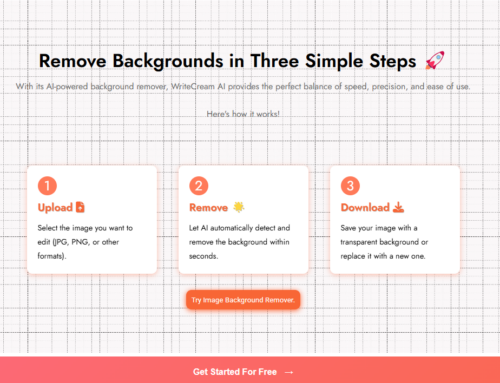Growth hacking is a field that focuses entirely on growth and is built on a data-driven, experiment-based methodology. It can be considered as a method of growth marketing your product or service.
By optimizing the product, a growth hacker looks for new opportunities in any aspect of the customer journey, from awareness, or seo optimization to marketing to brand advocates.
What does SaaS growth mean?
SaaS growth refers to two things usually:
- The SaaS industry is expanding.
- Keeping track of the expansion of your own SaaS
This article focuses on the general state of the sector. Consider the rate of growth in the SaaS market.
- Other statistics or factors to keep an eye on are:
- Spending by the entire industry
- Acquisitions/IPOs
- When compared to other industries, the SaaS industry is growing at a faster rate.
- Innovations in technology
- Other firms’ thought leadership
Measuring the Growth Rate of SaaS
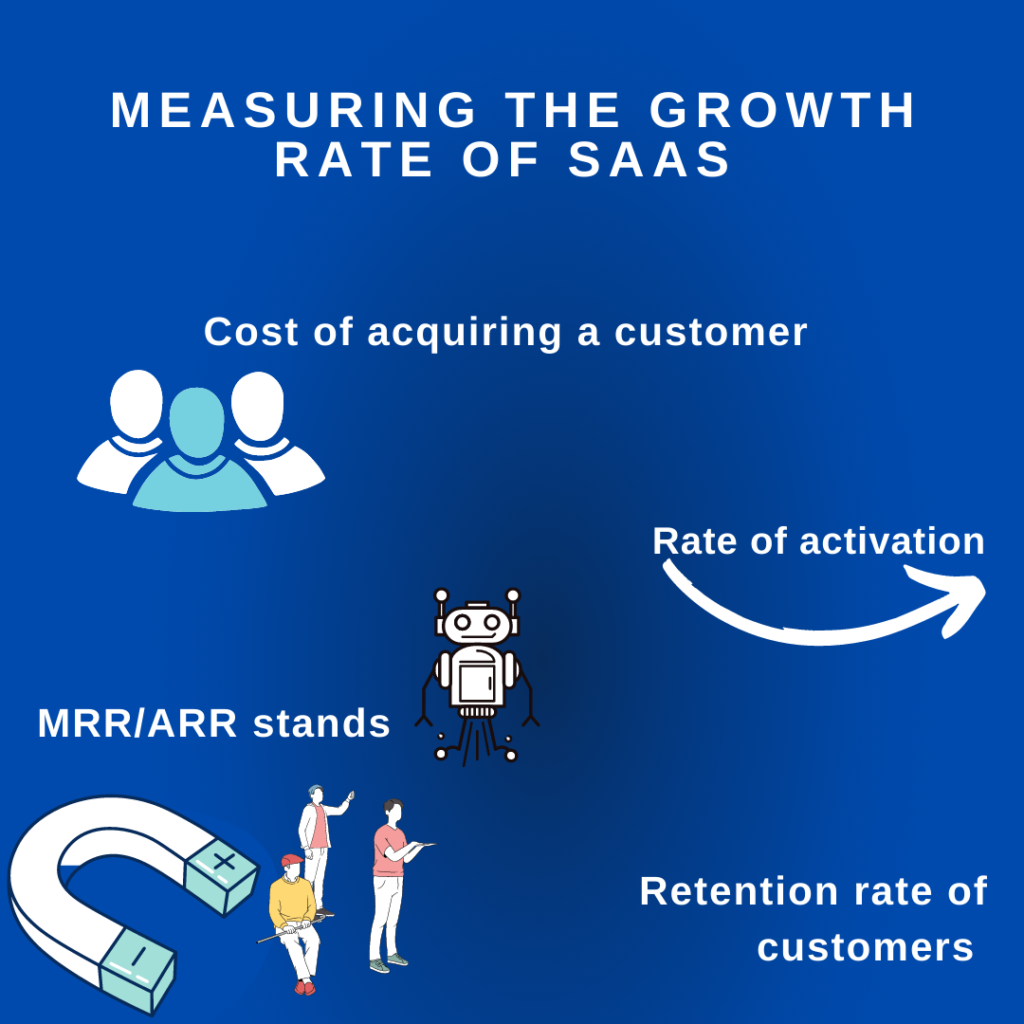
The growth rate of SaaS is measured by the following:
- Cost of acquiring a customer
- Rate of activation
- MRR/ARR stands for monthly recurring revenue/annual recurring revenue.
- Retention rate of customers
In today’s world, where does SaaS growth hacking stand for companies?
In technological sectors, the rate of change has accelerated exponentially and provides lifetime value. As a result, what we once thought of as the best saas growth hacker tactics is now a thing of the past.
At the absolute least, the 2019 growth-hacking tactics may provide you with the competitive advantage you require to increase your revenue. They’re still dependable and provide solid foundations. The growth benchmarks must change to 80-85%.
The current state of SaaS competition
- Over 10,000 private SaaS businesses exist. Starting a SaaS firm has never been easier. Unfortunately, this implies that the market is overcrowded, and standing out from the competition is critical.
- In 2022, the public SaaS industry is expected to reach $157 billion in size.
- When compared to the size of the market in 2014, this is more than twice.
- At least one SaaS application is used by 80 percent of enterprises.
- Even in historically “slower” businesses like HR and health care, consumers are eager to get on the SaaS bandwagon. However, because of the low entry barrier, there will be more competition.
- Managing customer acquisition cost is still a major problem
Is it worth it for SaaS companies to use growth hacking strategies?
Because you already know you have a small audience who needs, wants, and can benefit from your product, growth hacking for SaaS companies effectively works for SaaS products. The acquisition is critical, but you can’t compel potential customers who aren’t in your target market to buy a service they don’t require. You can refocus your growth strategies on retaining and monetizing the buyers who do meet the profile to grow your saas business. So, we have a few growth hacks that will help.
Many SaaS companies are well-positioned to take advantage of the essential stages of effective SaaS growth hacking strategies, which include:
- Limited Acquisition: One of the easiest ways is to concentrate your efforts on one or two buyer personas, and quit spending time and money on individuals that don’t fit your criteria.
- Increased Activation: Make use of freemiums and trials to entice customers to sample (and love) your product.
- Increase loyalty among and keep them with aggressive retention for future growth.
- Variable service level packages, upgrades, and add-ons ensure that your users can develop. Your bottom line, too, can benefit.
- Implementing automated billing processes: The use of reliable subscription management software can simplify invoicing, reduce churn, and improve cash flow management.
- Referral Marketing: You don’t want your clients to tell just one person about your product; you want them to tell three or four others. They inform three or four more people, and the cycle repeats itself. This is how you want to grow and convert your money stream into a raging river by making growth hacking sustainable, as called word-of-mouth marketing.
These hacks will act as actionable and effective saas growth marketing strategies as they work well for SaaS companies.
Successful growth hacking technique for your business
One of the best ways to attract your target audience is to recognize and address common customer issues
In practically every business, the concept of software as a service has become commonplace. Rather than placing all of your eggs in the customer education basket, concentrate on what potential consumers will experience when deploying your solution.
Companies frequently face the following obstacles while using SaaS systems, according to Finances Online:
- Saas Security
- Compliance and governance
- Staff with no prior knowledge of the cloud
- Privacy
- Lock-ins for vendors
- Cost
- Visibility issues
- Outages
Take a page from Vabotu, a project management application.
They include elements that actively promote transparency and visibility.
They have a feature called Guest Access, for example. When your customers are working with external teams or their own customers, this comes in useful.
It makes reporting easier, and it’s simple to incorporate.
Takeaways
By anticipating clients’ frequent challenges in 2020, you can hack your SaaS growth. Create solutions for implementation issues to aid user adoption at a large scale.
1) Go referral crazy by using Dropbox
Dropbox used a standard referral program: get your consumers to promote your product. Dropbox, on the other hand, increased the ante by boosting the benefits and plastering their “Refer a Friend” message all over the place.
Dropbox has become synonymous with cloud-based storage as a result of its success.
2) Watch how Airbnb used free marketing tools
Platforms like Airbnb aimed to market vacation houses and rentals, which Craigslist also did.
“If you can’t beat ’em, join ’em,” is a famous saying. As a result, Airbnb’s expansion hacked its way into Craigslist, leveraging the large platform’s massive reach to increase their own. Notice their marketing tactics.
When a person created an Airbnb listing, they were also prompted to create a Craigslist listing. Of course, this necessitated some coding ninja abilities. (There isn’t an API for Craigslist.) Airbnb, on the other hand, did it and hopped on a massive platform to accelerate its growth.
3) Dominating content marketing like Buffer
Buffer made software and a lot of beautiful content. They were extremely effective as they made long charts, graphs, etc to attract customers. They knew how to spread their message on social media. They made their growth hacking work.
4) Repurposing content
Have you written a blog post? Make a webinar out of it. Are your YouTube videos performing well? On your podcast, reintroduce the topic. Different forms of material appeal to different customers.
Contrary to common assumptions, simple SaaS content marketing can help you hack growth. You can begin right now by pushing through the dust and giving your old stuff a good hard look. What has to be updated? What might be more effective in a different format?
Customers aren’t going to search through your archives looking for old material. Meet them where they are right now with the appropriate content. The main purpose of growth hacking is to repurpose content.
5) Offer free trials
Offering short free trials for free is something customers won’t refute. The element of growth hacking includes providing good support to them so that they get a hang of things is extremely beneficial. Offering your product as a freemium model is another way. They can upgrade their model by paying a specific amount. By doing this, customers will hang around with the services offered as people like free stuff and would want to familiarise with it.
6) Cultivating an email list
Email marketing is still relevant.
Newsletters with a subscription model are obviously a terrific way to keep customers. It’s part of the added value that businesses provide to loyal clients.
Email, on the other hand, is still a viable alternative for reaching out to new clients with content. With a well-designed email, you can provide them with valuable content that will persuade them to buy your product.
7) Influence marketing
Influencer marketing is the best way to market your products. This is a great way to make more customers know about your brand. SaaS brands can utilize this strategy very well. Customers will share the content online on different social media platforms like Facebook and LinkedIn. This can reach a huge customer base and many people will start buying your product. Influence marketing is very expensive if you are targeting high profile influencers with a lot of followers but a great method of sales and marketing.
8) Investing in content marketing
Content marketing has always been a successful strategy for businesses. Producing more content will result in more website traffic, leveraging growth. You may also use content marketing to set yourself out from the competitors. You’re building an evergreen library of helpful, instructive content that keeps readers coming back for more, in addition to establishing oneself as an industry thought leader, leading to the growth of your saas company. HubSpot is a great example of a SaaS company that fueled its expansion by creating a content empire. HubSpot created a library of free online training courses and certifications in addition to a comprehensive, well-optimized blog about all things inbound marketing.
9) Grow your presence through online
Growing your presence in web directories is one way to build not only your brand recognition but also your domain authority. G2 Crowd, Capterra, and GetApp are among the most popular for SaaS companies; however, many industries have their own online directories. MarTech Health Directory, for example, is for healthcare, ClickZ is for marketing, and Digital Commerce 360 is for e-commerce apps.
10) Blast from the past
Checking on people who visited your site in the past and free trial is a good thing. Showing them, you care following up on past inquires with solutions is extremely beneficial in order to grow the brand. This is also a good component of customer service.
11) Improving customer service
The following can be done to improve customer service:
- Remind your existing customers that they are speaking with genuine individuals in a genuine saas space. Attach names to emails and keep track of consumer information.
- Keep in touch. Even when difficulties are handled, don’t leave someone hanging. Inquire about the customer’s experience.
- Allow folks to choose. Make yourself available through social media, SMS, email addresses, your website, and phone.
- Organize your resources. Create a knowledge base or a discussion forum for people to use.
12) Landing pages
Web pages that are specifically built for a single marketing campaign are known as landing pages. You send them here when you want people to do anything specific, like sign up for your newsletter, download an ebook, or buy something.
The following are three reasons to have a landing page:
Hyper-targeted CTA. Use concise messaging on a single page to compel your customers to take action. Don’t spread it out over several pages.
Directly respond to inquiries. Your client is having an issue. You have a response. Landing pages can assist you in communicating this.
Conversion rates are important. You’ll be converting like crazy once you figure out the landing.
13) Quora and Reddit can be used to drive targeted traffic.
Your audience enjoys conversing. All you have to do now is figure out where they’re having the conversation and make sure your contribution is valuable. On Quora, this entails responding to inquiries about the services you provide.
You should also use Reddit to look for appropriate Subreddits to join based on your top keywords. page secrets that have been proven to generate leads.
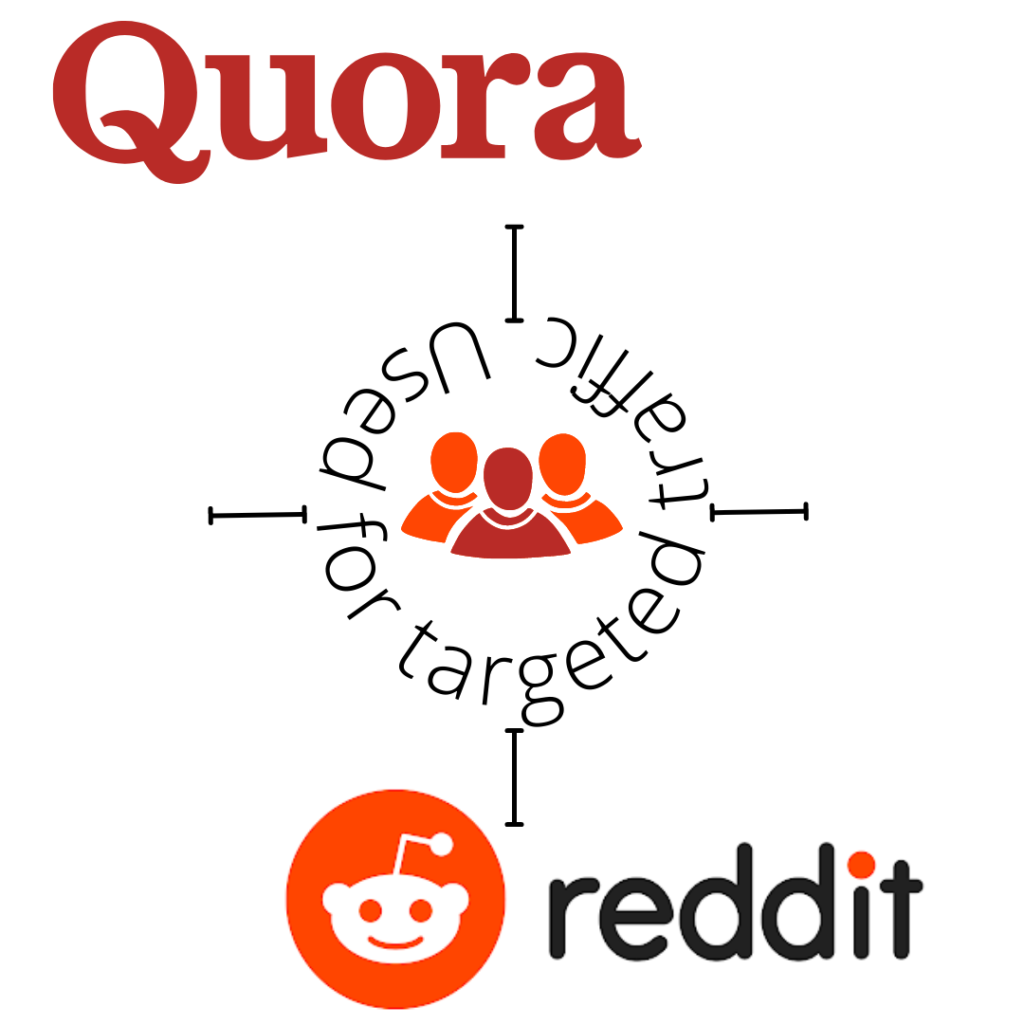
14) Obtain a listing in start-up directories for your company.
Consumers have become more knowledgeable in recent years, and while many are eager to support start-ups and SaaS companies like yours, they are wary of doing so without first verifying the company’s credibility, reading reviews, and making an educated decision. Adding your business to one (or more) of these start-up directories is a terrific way to attract new customers. Just keep in mind that making your reviews public is a good idea so that potential clients know they’re getting a reliable, vetted, and high-quality service.
15) Keep an eye on the Product Hunt.
To some marketers and founders, Product Hunt is a graveyard of failed tech and struggling enterprises. However, if used effectively, it can be a goldmine in terms of new users and engagement. Many brands make a deadly mistake shortly after their initial debut. They gather subscriber information, create a mailing list, write a bland thank you…and then vanish.
You must create a community in order to boost your Product Hunt rankings.
16) FAQS are always important
FAQs are important for increasing search rankings, and they usually bring users further into your website content, naturally seducing them along the funnel.
17) Leverage LinkedIn’s power
LinkedIn is an excellent platform for many marketers wanting to gain new users and create relationships with their audience, with 675 million monthly members. More than half of all social traffic towards B2B websites comes from LinkedIn, and blogs, guaranteeing that your LinkedIn efforts are not in vain.
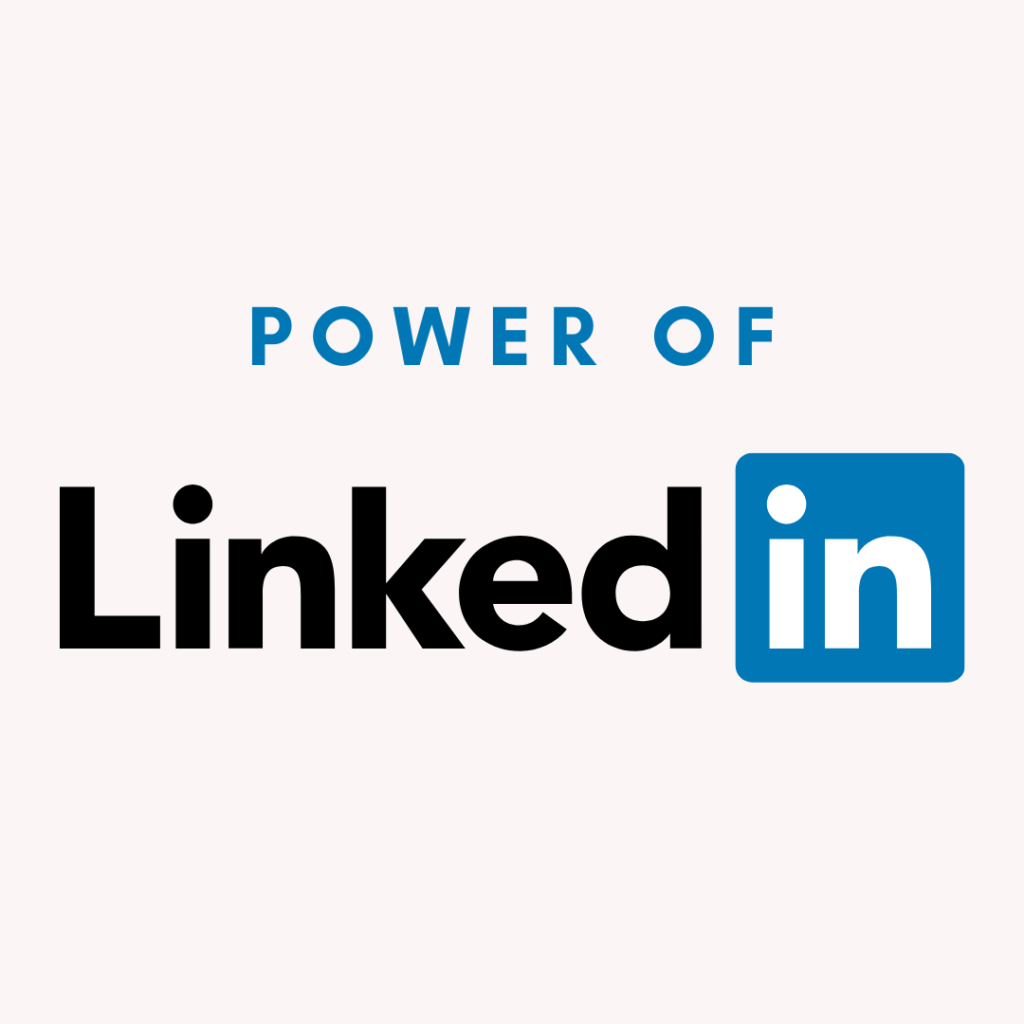
Important growth hacking practices
Every company’s growth hacking strategy will be unique. What one person finds to be highly successful may have no influence on another. That’s because your growth hacking strategy’s success is determined by your specific product offering, target market, and industry. Being innovative, asking questions, analysing what’s working (and what isn’t), and pivoting depending on your discoveries are the keys to finding the correct solution for your company.
Keep your focus in check. Growth hacking’s purpose is to rapidly build a firm on a shoestring budget, but it doesn’t imply you should try to reach out to everyone. Focusing on 1-2 buyer personas, semi-fictional depictions of your ideal clients, is the greatest place to start. Keeping your focus can help you guide your growth hacking plan and keep the wrong folks out of the pipeline.
Pay attention to your customers.
Listening to your users is critical for any company seeking to expand successfully. Their advice can help you figure out what you’re doing properly, where you can improve, and even what changes you should make to your programme. With humility, accept criticism.
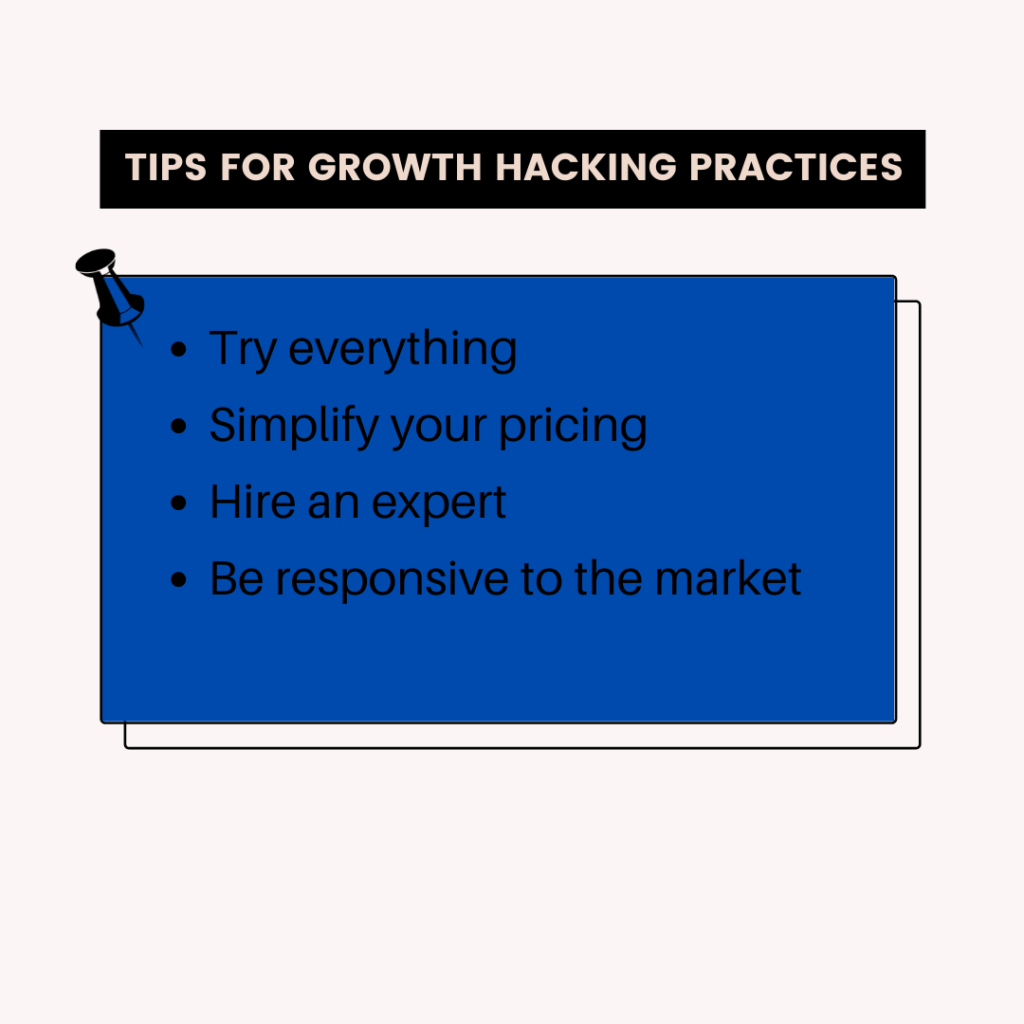
Some Bonus Growth Hacking Tips
- Try everything
- Simplify your pricing
- Hire an expert
- Be responsive to the market
Summary
It’s a terrific approach to attract more customers by bidding on your competitor’s branded keywords. It pays to execute a PPC campaign bidding on your competitors’ brand phrases if they are better established in the market. Make a point of highlighting the distinctions between your tool and those of your competitors. If you provide a free trial and they don’t, for example, emphasize it. When potential consumer sees your ad, they’re going to Google to look you up. Directing them to the landing page also is a nice ethic.

